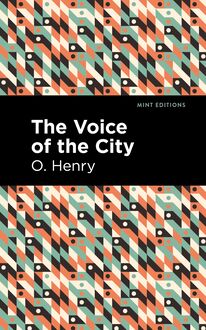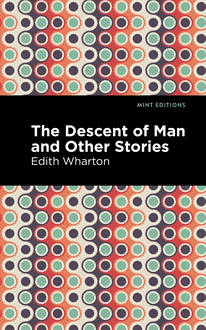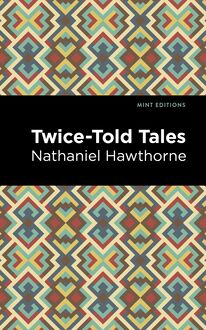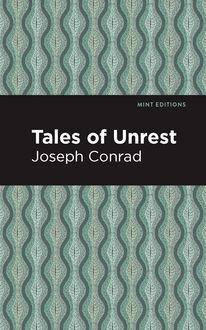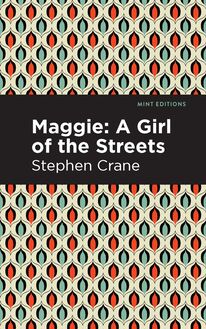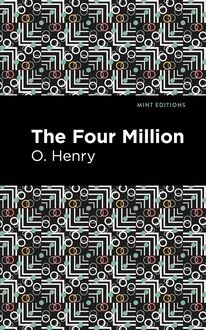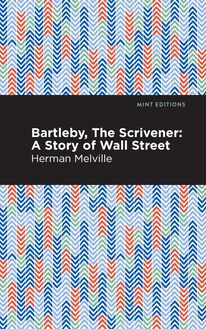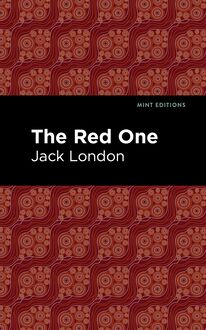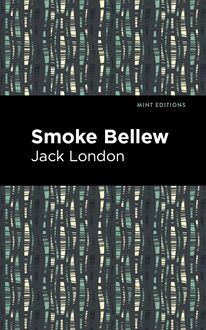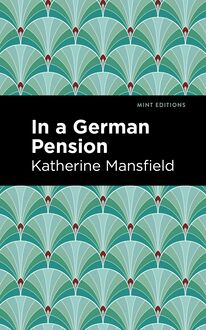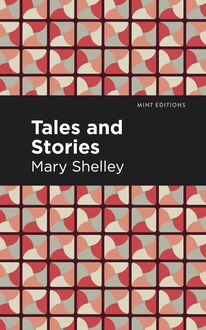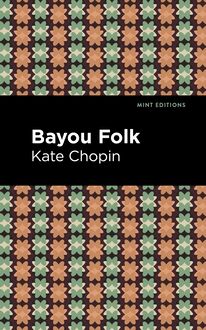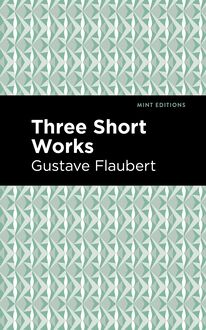-
 Univers
Univers
-
 Ebooks
Ebooks
-
 Livres audio
Livres audio
-
 Presse
Presse
-
 Podcasts
Podcasts
-
 BD
BD
-
 Documents
Documents
-
- Cours
- Révisions
- Ressources pédagogiques
- Sciences de l’éducation
- Manuels scolaires
- Langues
- Travaux de classe
- Annales de BEP
- Etudes supérieures
- Maternelle et primaire
- Fiches de lecture
- Orientation scolaire
- Méthodologie
- Corrigés de devoir
- Annales d’examens et concours
- Annales du bac
- Annales du brevet
- Rapports de stage
La lecture à portée de main
Vous pourrez modifier la taille du texte de cet ouvrage
Découvre YouScribe en t'inscrivant gratuitement
Je m'inscrisDécouvre YouScribe en t'inscrivant gratuitement
Je m'inscrisEn savoir plus
Vous pourrez modifier la taille du texte de cet ouvrage
En savoir plus

Description
The Golden Age (1895) is a collection of stories by Kenneth Grahame. Although less popular than The Wind in the Willows (1908), which would go on to become not only a defining work of Edwardian English literature, but one of the most popular works of children’s fiction in the world, The Golden Age is a moving portrait of youth, an understated autobiographical meditation made for children and adults alike.
Recalling his youth among elders who exemplified Victorian values of stoicism and quiet decency, Kenneth Grahame refers to these hallowed figures as the “Olympians” whose presence provided both order and necessary balance to his rambunctious, imaginative boyhood. Now an adult himself, Grahame wonders if he has become one of these “Olympians,” and looks back on his youth not only for an answer, but for a reaffirmation of the joy and freedom of a childhood spent among friends. In the stories that follow, he recalls the games they played, the places they discovered, and the legends they made of the normal, the boring, and the everyday found all around them. Filled with references to classical Greek mythology, Grahame’s collection is nostalgic for a world left behind, yet open to reconstituting a reality more wonderful for its common nature. The Golden Age is not just a book about the experience of childhood, but a study of the past that must remain present within us. Grahame’s book remains, over a century after it was published, a classic work of literature for children and adults alike.
With a beautifully designed cover and professionally typeset manuscript, this edition of Kenneth Grahame’s The Golden Age is a classic work of British literature reimagined for modern readers.
Sujets
Informations
| Publié par | Mint Editions |
| Date de parution | 20 avril 2021 |
| Nombre de lectures | 0 |
| EAN13 | 9781513285207 |
| Langue | English |
| Poids de l'ouvrage | 2 Mo |
Informations légales : prix de location à la page 0,0350€. Cette information est donnée uniquement à titre indicatif conformément à la législation en vigueur.
Extrait
The Golden Age
Kenneth Grahame
The Golden Age was first published in 1895.
This edition published by Mint Editions 2020.
ISBN 9781513280189 | E-ISBN 9781513285207
Published by Mint Editions®
minteditionbooks.com
Publishing Director: Jennifer Newens
Design & Production: Rachel Lopez Metzger
Project Manager: Micaela Clark
Typesetting: Westchester Publishing Services
C ONTENTS P ROLOGUE . T HE O LYMPIANS A H OLIDAY A W HITE -W ASHED U NCLE A LARUMS AND E XCURSIONS T HE F INDING OF THE P RINCESS S AWDUST AND S IN “Y OUNG A DAM C UPID ” T HE B URGLARS A H ARVESTING S NOWBOUND W HAT T HEY T ALKED A BOUT T HE A RGONAUTS T HE R OMAN R OAD T HE S ECRET D RAWER “E XIT T YRANNUS ” T HE B LUE R OOM A F ALLING O UT “L USISTI S ATIS ”
P ROLOGUE
The Olympians
Looking back to those days of old, ere the gate shut behind me, I can see now that to children with a proper equipment of parents these things would have worn a different aspect. But to those whose nearest were aunts and uncles, a special attitude of mind may be allowed. They treated us, indeed, with kindness enough as to the needs of the flesh, but after that with indifference (an indifference, as I recognise, the result of a certain stupidity), and therewith the commonplace conviction that your child is merely animal. At a very early age I remember realising in a quite impersonal and kindly way the existence of that stupidity, and its tremendous influence in the world; while there grew up in me, as in the parallel case of Caliban upon Setebos, a vague sense of a ruling power, wilful and freakish, and prone to the practice of vagaries—“just choosing so:” as, for instance, the giving of authority over us to these hopeless and incapable creatures, when it might far more reasonably have been given to ourselves over them. These elders, our betters by a trick of chance, commanded no respect, but only a certain blend of envy—of their good luck—and pity—for their inability to make use of it. Indeed, it was one of the most hopeless features in their character (when we troubled ourselves to waste a thought on them: which wasn’t often) that, having absolute licence to indulge in the pleasures of life, they could get no good of it. They might dabble in the pond all day, hunt the chickens, climb trees in the most uncompromising Sunday clothes; they were free to issue forth and buy gunpowder in the full eye of the sun—free to fire cannons and explode mines on the lawn: yet they never did any one of these things. No irresistible Energy haled them to church o’ Sundays; yet they went there regularly of their own accord, though they betrayed no greater delight in the experience than ourselves.
On the whole, the existence of these Olympians seemed to be entirely void of interests, even as their movements were confined and slow, and their habits stereotyped and senseless. To anything but appearances they were blind. For them the orchard (a place elf-haunted, wonderful!) simply produced so many apples and cherries: or it didn’t, when the failures of Nature were not infrequently ascribed to us. They never set foot within fir-wood or hazel-copse, nor dreamt of the marvels hid therein. The mysterious sources—sources as of old Nile—that fed the duck-pond had no magic for them. They were unaware of Indians, nor recked they anything of bisons or of pirates (with pistols!), though the whole place swarmed with such portents. They cared not about exploring for robbers’ caves, nor digging for hidden treasure. Perhaps, indeed, it was one of their best qualities that they spent the greater part of their time stuffily indoors.
To be sure, there was an exception in the curate, who would receive unblenching the information that the meadow beyond the orchard was a prairie studded with herds of buffalo, which it was our delight, moccasined and tomahawked, to ride down with those whoops that announce the scenting of blood. He neither laughed nor sneered, as the Olympians would have done; but possessed of a serious idiosyncrasy, he would contribute such lots of valuable suggestion as to the pursuit of this particular sort of big game that, as it seemed to us, his mature age and eminent position could scarce have been attained without a practical knowledge of the creature in its native lair. Then, too, he was always ready to constitute himself a hostile army or a band of marauding Indians on the shortest possible notice: in brief, a distinctly able man, with talents, so far as we could judge, immensely above the majority. I trust he is a bishop by this time,—he had all the necessary qualifications, as we knew.
These strange folk had visitors sometimes,—stiff and colourless Olympians like themselves, equally without vital interests and intelligent pursuits: emerging out of the clouds, and passing away again to drag on an aimless existence somewhere out of our ken. Then brute force was pitilessly applied. We were captured, washed, and forced into clean collars: silently submitting, as was our wont, with more contempt than anger. Anon, with unctuous hair and faces stiffened in a conventional grin, we sat and listened to the usual platitudes. How could reasonable people spend their precious time so? That was ever our wonder as we bounded forth at last—to the old clay-pit to make pots, or to hunt bears among the hazels.
It was incessant matter for amazement how these Olympians would talk over our heads—during meals, for instance—of this or the other social or political inanity, under the delusion that these pale phantasms of reality were among the importances of life. We illuminati, eating silently, our heads full of plans and conspiracies, could have told them what real life was. We had just left it outside, and were all on fire to get back to it. Of course we didn’t waste the revelation on them; the futility of imparting our ideas had long been demonstrated. One in thought and purpose, linked by the necessity of combating one hostile fate, a power antagonistic ever,—a power we lived to evade,—we had no confidants save ourselves. This strange anaemic order of beings was further removed from us, in fact, than the kindly beasts who shared our natural existence in the sun. The estrangement was fortified by an abiding sense of injustice, arising from the refusal of the Olympians ever to defend, retract, or admit themselves in the wrong, or to accept similar concessions on our part. For instance, when I flung the cat out of an upper window (though I did it from no ill-feeling, and it didn’t hurt the cat), I was ready, after a moment’s reflection, to own I was wrong, as a gentleman should. But was the matter allowed to end there? I trow not. Again, when Harold was locked up in his room all day, for assault and battery upon a neighbour’s pig,—an action he would have scorned, being indeed on the friendliest terms with the porker in question,—there was no handsome expression of regret on the discovery of the real culprit. What Harold had felt was not so much the imprisonment,—indeed he had very soon escaped by the window, with assistance from his allies, and had only gone back in time for his release,—as the Olympian habit. A word would have set all right; but of course that word was never spoken.
Well! The Olympians are all past and gone. Somehow the sun does not seem to shine so brightly as it used; the trackless meadows of old time have shrunk and dwindled away to a few poor acres. A saddening doubt, a dull suspicion, creeps over me. Et in Arcadia ego,—I certainly did once inhabit Arcady. Can it be I too have become an Olympian?
A H OLIDAY
The masterful wind was up and out, shouting and chasing, the lord of the morning. Poplars swayed and tossed with a roaring swish; dead leaves sprang aloft, and whirled into space; and all the clear-swept heaven seemed to thrill with sound like a great harp.
It was one of the first awakenings of the year. The earth stretched herself, smiling in her sleep; and everything leapt and pulsed to the stir of the giant’s movement. With us it was a whole holiday; the occasion a birthday—it matters not whose. Some one of us had had presents, and pretty conventional speeches, and had glowed with that sense of heroism which is no less sweet that nothing has been done to deserve it. But the holiday was for all, the rapture of awakening Nature for all, the various outdoor joys of puddles and sun and hedge-breaking for all. Colt-like I ran through the meadows, frisking happy heels in the face of Nature laughing responsive. Above, the sky was bluest of the blue; wide pools left by the winter’s floods flashed the colour back, true and brilliant; and the soft air thrilled with the germinating touch that seemed to kindle something in my own small person as well as in the rash primrose already lurking in sheltered haunts. Out into the brimming sun-bathed world I sped, free of lessons, free of discipline and correction, for one day at least. My legs ran of themselves, and though I heard my name called faint and shrill behind, there was no stopping for me. It was only Harold, I concluded, and his legs, though shorter than mine, were good for a longer spurt than this. Then I heard it called again, but this time more faintly, with a pathetic break in the middle; and I pulled up short, recognising Charlotte’s plaintive note.
She panted up anon, and dropped on the turf beside me. Neither had any desire for talk; the glow and the glory of existing on this perfect morning were satisfaction full and sufficient.
“Where’s Harold;” I asked presently.
“Oh, he’s just playin’ muffin-man, as usual,” said Charlotte with petulance. “Fancy wanting to be a muffin-man on a whole holiday!”
It was a strange craze, certainly; but Harold, who invented his own games and played them without assistance, always stuck staunchly to a new fad, till he had worn it quite out. Just at present he was a muffin-man, and day and night he went through passages and up and down staircases, ringi
-
 Univers
Univers
-
 Ebooks
Ebooks
-
 Livres audio
Livres audio
-
 Presse
Presse
-
 Podcasts
Podcasts
-
 BD
BD
-
 Documents
Documents
-
Jeunesse
-
Littérature
-
Ressources professionnelles
-
Santé et bien-être
-
Savoirs
-
Education
-
Loisirs et hobbies
-
Art, musique et cinéma
-
Actualité et débat de société
-
Jeunesse
-
Littérature
-
Ressources professionnelles
-
Santé et bien-être
-
Savoirs
-
Education
-
Loisirs et hobbies
-
Art, musique et cinéma
-
Actualité et débat de société
-
Actualités
-
Lifestyle
-
Presse jeunesse
-
Presse professionnelle
-
Pratique
-
Presse sportive
-
Presse internationale
-
Culture & Médias
-
Action et Aventures
-
Science-fiction et Fantasy
-
Société
-
Jeunesse
-
Littérature
-
Ressources professionnelles
-
Santé et bien-être
-
Savoirs
-
Education
-
Loisirs et hobbies
-
Art, musique et cinéma
-
Actualité et débat de société
- Cours
- Révisions
- Ressources pédagogiques
- Sciences de l’éducation
- Manuels scolaires
- Langues
- Travaux de classe
- Annales de BEP
- Etudes supérieures
- Maternelle et primaire
- Fiches de lecture
- Orientation scolaire
- Méthodologie
- Corrigés de devoir
- Annales d’examens et concours
- Annales du bac
- Annales du brevet
- Rapports de stage
